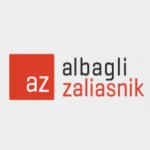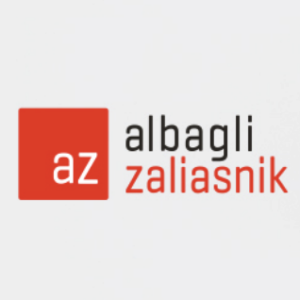
19-04-2022 | Noticias-en
 During September 2021, Law No. 21,369 was published in the Official Gazette of Chile, which regulates sexual harassment, violence and gender discrimination in the field of Higher Education. This responds to the different demonstrations that have been carried out, in recent years, in the different study houses throughout the country, in which protocols and sanctions were required in these cases.
During September 2021, Law No. 21,369 was published in the Official Gazette of Chile, which regulates sexual harassment, violence and gender discrimination in the field of Higher Education. This responds to the different demonstrations that have been carried out, in recent years, in the different study houses throughout the country, in which protocols and sanctions were required in these cases.
Article 1 of the law clearly establishes what the objective of the law is: to promote policies aimed at preventing, investigating, punishing and eradicating sexual harassment, violence and gender discrimination; protect and repair the victims; establish safe environments free of sexual harassment, violence and gender discrimination, for all people who attend higher education academic communities.
The law requires higher education institutions to have a comprehensive policy against sexual harassment, violence and gender discrimination, which must contain a prevention model and a sanction model. In addition, it is required that all the levels that make up the higher education institution participate in the drafting of said policy.
Although many universities and professional institutes have been adopting policies in case of sexual harassment, violence and discrimination, Law No. 21,369 establishes a series of requirements that the policies must contain, which will be subject to control by the authority, therefore in more than one case, it will involve modifying existing policies.
For example, in article 5 of the law, the measures that the prevention model must contain are established: diagnosis of activities that are carried out within the respective institution and may imply a risk; set of measures aimed at preventing risks; awareness and information campaigns on human rights, sexual harassment, violence and gender discrimination; training for officials and academics; incorporate content on human rights, sexual harassment, gender violence and discrimination in the curricular plans; and, include the policies in the induction processes.
Higher education institutions will have until September 15, 2022 to implement the prevention models and sanction models and, once implemented, they are given a period of 90 days -extendable for 30 days- to perfect the models. and staff orientation or training.
From the Superintendence of Higher Education they have been emphatic that they will sanction the houses of studies that do not comply with a comprehensive policy against sexual harassment, violence and discrimination, as established by law, to the point that they will not be able to obtain their accreditation. institutional.
All of the aforementioned translates into an exhaustive process that higher education institutions must carry out. The implementation of a prevention and sanction model in accordance with the requirements established in Law No. 21,369 aims to prevent, sanction and eradicate sexual harassment, violence and gender discrimination, and ensure safe environments.
This is possible to the extent that all the stages involved in this process are met, and understanding that the work does not end once the prevention and sanction models are drawn up, but that implementation, training and constant review and updating are key to to ensure the objectives established by law.
For more information you can contact:

Rodrigo Albagli | Partner Albagli-Zaliasnik | ralbagli@az.cl

Daniela Hirsch | Compliance Group Director | dhirsch@az.cl

13-04-2022 | Noticias-en
 Law No. 20,393, which establishes the Criminal Responsibility of Legal Entities (RPPJ) , was published in our country in December 2009. In 2016, through Law No. 20,391, the crime of reception was introduced to the catalog of crimes susceptible to be committed by legal persons. However, it was not until its second reform, in November 2018, by Law No. 21,121, which incorporated economic crimes such as incompatible negotiation, unfair administration and bribery between individuals, among others, into the sphere of criminal responsibility of the legal entity . Criminal Compliance was really promoted in our country.
Law No. 20,393, which establishes the Criminal Responsibility of Legal Entities (RPPJ) , was published in our country in December 2009. In 2016, through Law No. 20,391, the crime of reception was introduced to the catalog of crimes susceptible to be committed by legal persons. However, it was not until its second reform, in November 2018, by Law No. 21,121, which incorporated economic crimes such as incompatible negotiation, unfair administration and bribery between individuals, among others, into the sphere of criminal responsibility of the legal entity . Criminal Compliance was really promoted in our country.
Since that reform, this law has been modified several times, and there is a clear tendency of the legislator to establish the criminal liability of legal persons with increasing frequency. Perhaps the most relevant bills in this regard are the Bill on Economic Crimes, which expands the list of crimes in Law 20,393 to more than 100, and the bill for the New Penal Code directly eliminates the list of crimes, establishing the potential liability of the legal person before any crime, to the extent that certain requirements are met.
It is relevant to attend to the most recent modifications to the law, which incorporated the responsibility linked to crimes from the Immigration and Immigration Law and those of the Law on Arms Control , in order to review the relevance of evaluating the risks of our organization. and update the risk matrices and applicable controls, as necessary.
Liability for gun control law offenses
On January 25, 2022, Law 21,412 entered into force, amending various legal bodies to strengthen Arms Control. Among the modifications introduced by this law, the incorporation to the catalog of crimes that are likely to generate criminal liability of the legal person is included, all the crimes contemplated in Title II of Law No. 17,798, on Arms Control. Consequently, the Legal Entity may be responsible for crimes committed in its organization, such as the crimes foreseen for those who organize, belong to, finance, provide, help, instruct, incite the creation and operation of private militias, combat groups or organized military parties. ; the carrying, possession or possession of firearms or explosives without the corresponding authorizations or registrations; the commercialization, manufacture, importation and internment into the country of weapons, artifacts and ammunition that are prohibited or subject to control; and the sale of ammunition or cartridges to someone who is not the possessor, holder or carrier of a registered firearm, among others.
Considering that this modification is already in force, it is necessary for organizations to update their Crime Prevention Models to current regulations , raising the risks of non-compliance, developing protocols and carrying out the corresponding training in order to effectively mitigate the risks detected.
Responsibility for the crime of human trafficking
Although the new Law No. 21,325 on Migration or Aliens was published in April 2021, it has not yet entered into force because the publication of its regulations is pending. Said regulation must be prepared by the Ministry of the Interior and Public Security no later than April of this year.
As far as we are concerned, this law toughens the penalty for the crime of human trafficking, while incorporating said crime into the catalog of Law No. 20,393. It should be remembered that human trafficking is typified in article 411 quater of the Penal Code, which sanctions anyone who ” through violence, intimidation, coercion, deception, abuse of power, taking advantage of a situation of vulnerability or dependency of the victim, or the granting or receiving of payments or other benefits to obtain the consent of a person who has authority over another person who recruits, transfers, shelters or receives persons so that they may be the object of some form of sexual exploitation.”
However, there is a question about the effective applicability of the criminal liability of the legal person for this crime, since the legislator did not expressly indicate what penalties would be applicable to the legal person in case of commission of this crime. This means that, in practice, it is impossible to impose a sentence on a legal person for committing this crime, since this would violate the principle of legality at its best: nulla poena sine lege previa .
Notwithstanding this, we recommend that companies incorporate the crime of human trafficking in their crime prevention model, showing proactivity in prevention and, at the same time, anticipating the complementation that will probably be made of the law in a short time. , in order to remedy this defect and fully apply the liability of legal persons for these very serious events.
Daniela Hirsch | Compliance Group Director | dhirsch@az.cl
Sofia Reizin | Associate | sreizin@az.cl







